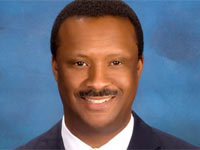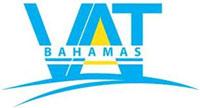
While most Bahamians appreciate the essential role that tourism plays in our economy, lives and livelihoods; there is a need to further clarify the tax and revenue contributions to our economy. The goal is to dispel any myths about this industry. We all stand to pay a hefty price if rhetoric drives public taxation policies.
As the Government seeks new revenues to reduce the budget deficit, the tourism industry has become a prime target by some. Tourism leaders understand how important it is to keep our economy in recovery, and believe the industry has paid its fair share.
For the record, the Bahamas Hotel and Tourism Association has not opposed VAT. We’ve argued that VAT or any taxation policies should not impact our price competitiveness and consequently have a negative effect on the economy. Our views are captured in the industry’s Smart Tax Policy, and details are being finalized.
Please consider these facts. Tourism currently generates more than $700 million in taxes annually—by far the most of any industry. Since 2010, taxation on tourism has risen more than on any other sector, including steep hikes on room, departure and business license taxes. Now, with the proposed Value-Added Tax (VAT), that burden threatens to make The Bahamas more expensive to travel to, slow the economy, impact tourism employment, and reduce The Bahamas’ competitiveness as an international Tourism destination.
Moreover, tourism is vital to all Bahamians. An estimated 50 cents out of every dollar in a Bahamian’s pocket comes from tourists—a stark reminder of how important the industry is to our economic future.
The World Travel & Tourism Council recently released its 2014 Forecast for The Bahamas. For the first time in the nation’s history tourism will generate more than 100,000 jobs in the Bahamian economy. That’s 54.5 percent of total employment, and those numbers are only expected to increase in the next few years. If anything, tourism will become more important to The Bahamas’ economic health in the future.
Since 2010, the tourism industry has seen several across-the-board tax increases. Room taxes, for example, have increased 66 percent, or more than $19 million, to add a total of $45 million to Government coffers in 2013. By the middle of this year departure taxes will have nearly doubled to $29 per person. Combined, room taxes and departure fees added approximately $160 million to the Treasury last year.
Similarly, the business license tax has increased substantially for both small hotels and major resorts. This year the turnover tax on small hotels has risen 50 percent, while major resorts now pay 1.75 percent of turnover—a 250 percent increase.
Let’s also dispel the myths about our industry’s contribution to Customs Duties. Investment incentives (or concessions as they are inaccurately often referred to) providing customs duty relief for qualified investments under the Hotels Encouragement Act or Heads of Agreement only extend to building or major refurbishments. They are designed to stimulate investment and economic activity. The customs duty benefits do not extend to the day to day purchases by hotels of food, beverages, equipment, supplies, furnishings, etc. Just like you and I, hotels pay customs duties on everyday purchases – contributing significantly to the Government’s revenue take.
These costs, like a VAT, get passed along to consumers, raising prices without delivering a measurable benefit to the potential tourist.
Economic Recovery and Hidden Costs
In addition to these tax increases, the industry has struggled to recover from the deep economic recession as travelers gradually venture overseas once more. To mitigate the effects of the economy and higher taxes, the Tourism industry and the Ministry of Tourism have spent millions of dollars marketing the destination in recent years through its successful airlift rebate program. These incentives have helped to entice travelers to The Bahamas, but they underscore another major issue: consumer price sensitivity.
Price is now a key factor in vacation buying decisions, according to an independent survey conducted by MMGY Global for the Nassau/Paradise Island Promotion Board. The survey, which was conducted last year, queried U.S. adults in the prime age group of 35-54 with a minimum household income of $85,000 who vacation regularly but have never been to The Bahamas or have not vacationed here in two years or more.
A full 65 percent said they would be willing to spend less than $2,000 for airfare, ground transfers and lodging for a four-night vacation package for two to The Bahamas. That means that our pool of potential visitors is limited and becomes even smaller as prices increase.
You do the math: airfare averages $500 per person ($1,000), leaving just $1,000 to cover four nights for hotel and ground transfer expenses. In today’s high-cost environment, it becomes increasingly difficult to attract larger numbers of visitors to The Bahamas as our price points increase.
As competing international vacation destinations fight for market share, consumers have clearly become more cost-conscious in the wake of the economic recession. When making the choice between the Dominican Republic, Cancún, Las Vegas or The Bahamas, today’s travelers use price as a prime consideration. For the record, average room rates last year in the DR were $114 and $176 in Cancun. According to Smith Travel Research, the average room rate reported last year for The Bahamas was $264.
A Rational Plan
Tourism for A Better Bahamas, a Tourism industry coalition, will complete its research early next month and present options through a ‘Smart Tax’ approach to reduce or supplement the Government’s proposed VAT. The Tourism industry remains ready and willing to pay its fair share of taxes, but can’t absorb a disproportionate share of the deficit burden affecting price competitiveness without major consequences.
We believe the Government can raise the revenue needed through proposed alternatives, including a revised VAT, possible shared payroll tax, and regulation/taxation of web shop numbers businesses. These measures should be combined with disciplined Government spending, diligence in improving the collection of existing taxes and the enforcement of current tax laws. Together, the proposed measures can ease the deficit while supporting the tourism industry’s gradual recovery. All individuals and businesses must be expected to pay owed taxes, including those hotels which have fallen behind in their obligations.
Our decisions must be driven by the facts. Let’s dispel the myths and focus on opportunities.
By Stuart Bowe
Stuart Bowe is the President of the Bahamas Hotel & Tourism Association. He currently serves as Senior Vice President and General Manager of the Coral/Beach Towers at Atlantis.



